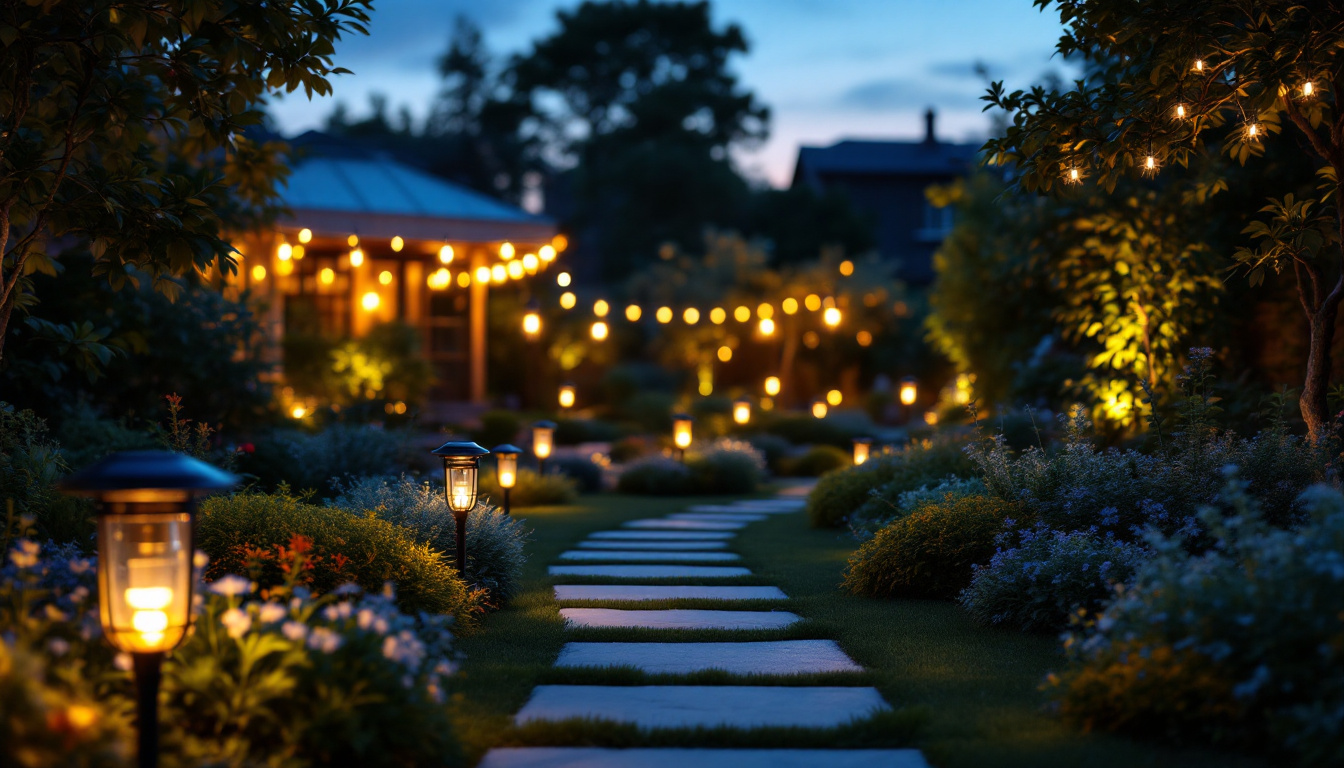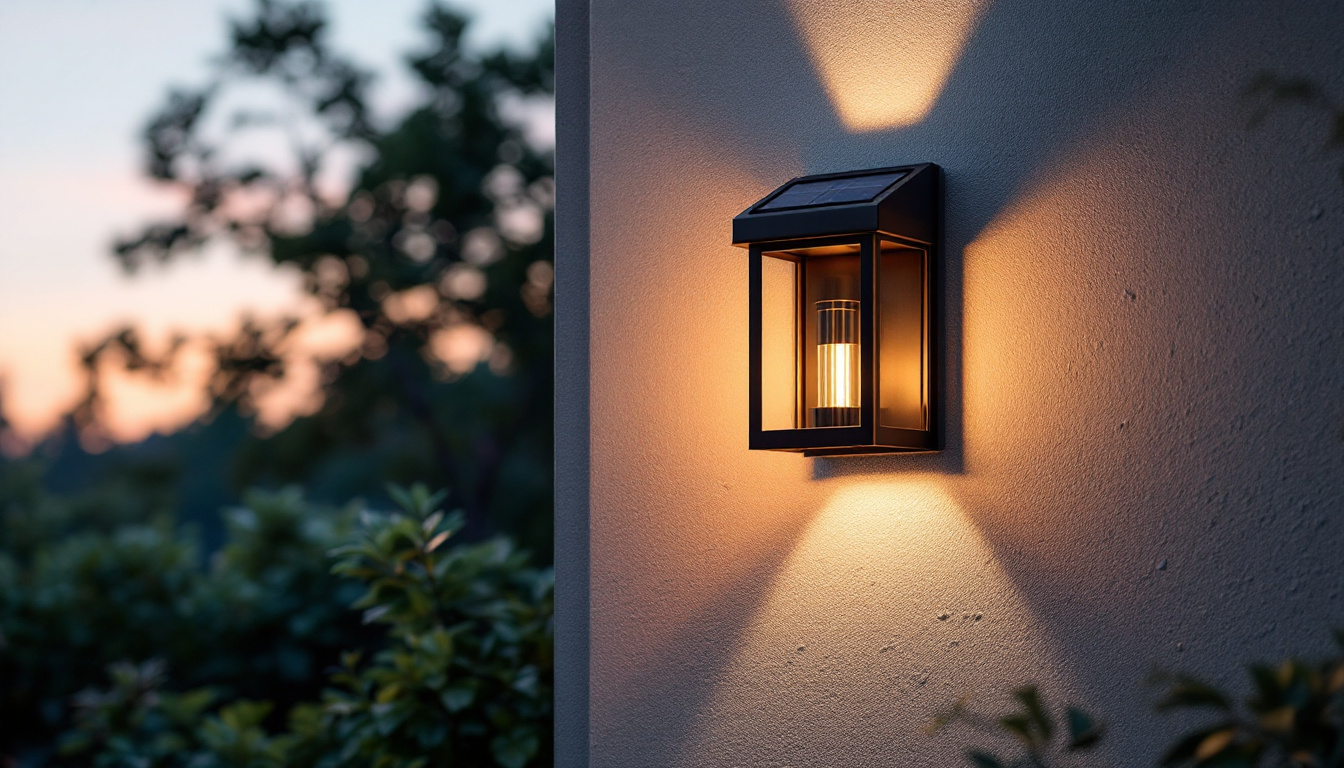

Garden Solar Lights: vs. Alternatives, What Lighting Contractors Should Choose
In the ever-evolving landscape of outdoor lighting solutions, garden solar lights have emerged as a popular choice among homeowners and contractors alike. However, the question remains: are they the best option compared to traditional lighting methods? This article explores the advantages and disadvantages of garden solar lights versus their alternatives, providing insights for lighting contractors on what to choose for their projects.
Garden solar lights harness the power of the sun to illuminate outdoor spaces. These lights are equipped with solar panels that charge during the day, allowing them to operate at night without the need for electrical wiring. This feature makes them particularly appealing for residential gardens, pathways, and patios. The variety of styles available, from sleek modern designs to charming vintage lanterns, allows homeowners to choose lights that complement their outdoor aesthetics while providing functional illumination.
One of the most significant advantages of garden solar lights is their energy efficiency. Since they rely on solar energy, they can significantly reduce electricity costs for homeowners. Additionally, the absence of wiring means easier installation, making them an attractive option for DIY enthusiasts and contractors alike. This ease of installation is especially beneficial for those looking to enhance their outdoor spaces without the hassle of hiring an electrician or digging trenches for wiring.
Furthermore, solar lights are often designed with built-in sensors that automatically turn them on at dusk and off at dawn. This feature not only adds convenience but also ensures that the lights are used efficiently, maximizing their lifespan and reducing maintenance needs. Many models also come with adjustable brightness settings or motion sensors, allowing for customizable lighting solutions that can enhance security around the home while providing a welcoming atmosphere for guests.
Despite their many benefits, garden solar lights do have limitations. Their performance is heavily dependent on sunlight exposure; cloudy days or shaded areas can hinder their ability to charge effectively. This can lead to dim lighting or even complete failure during the night. Homeowners in regions with long winters or frequent overcast weather may find that their solar lights do not perform as expected, necessitating the need for alternative lighting solutions during those periods.
Moreover, the initial cost of high-quality solar lights can be higher than traditional lighting options. While they save money in the long run, contractors must consider the upfront investment when recommending them to clients. It’s also important to note that not all solar lights are created equal; cheaper models may use lower-quality materials that can lead to reduced durability and shorter lifespans. Therefore, investing in reputable brands with good reviews can make a significant difference in the overall satisfaction and performance of garden solar lighting systems.
While garden solar lights have gained popularity, traditional lighting solutions remain a staple in outdoor illumination. These options include wired electric lights, low-voltage systems, and even gas-powered lights. Each alternative has its own set of advantages and disadvantages that contractors should consider.
Wired electric lights are a conventional choice for outdoor lighting. They provide consistent brightness and reliability, making them suitable for various applications, from security lighting to decorative fixtures. Contractors often prefer wired systems for their durability and performance.
However, installation can be labor-intensive and may require trenching for wiring, which can increase project costs and time. Additionally, wired systems can be less flexible when it comes to design changes or relocations, as they are permanently installed. On the upside, these systems can be integrated with smart home technology, allowing homeowners to control their outdoor lighting remotely and set schedules for enhanced security and convenience. This connectivity can also enable energy monitoring, making it easier to manage electricity usage and costs.
Low-voltage lighting systems offer a middle ground between solar and traditional wired options. These systems operate on 12 volts, making them safer and easier to install than standard electric lights. They are also energy-efficient, consuming less power while providing adequate illumination for gardens and pathways.
One of the key benefits of low-voltage systems is their versatility. Contractors can easily create custom layouts and designs, allowing for creative lighting solutions that enhance the aesthetics of outdoor spaces. However, like solar lights, low-voltage systems may require some maintenance, such as bulb replacements or transformer checks. Additionally, these systems can be expanded over time, making them an attractive option for homeowners who may want to gradually enhance their outdoor lighting as their landscaping matures or as their needs change. The ability to add fixtures without significant rewiring is a significant advantage, allowing for a more dynamic approach to outdoor design.
When evaluating garden solar lights versus traditional alternatives, several factors come into play. Understanding the specific needs of a project and the preferences of the client is crucial for making the right choice.
The first step in selecting the appropriate lighting solution is to assess the project requirements. Consider the size of the area to be illuminated, the desired brightness, and the intended use of the lighting. For example, if the goal is to enhance security, wired electric lights may provide the necessary brightness and reliability.
On the other hand, if the project involves a small garden or pathway where aesthetics are prioritized, solar lights could be a viable option. They can create a warm and inviting atmosphere while being environmentally friendly.
Understanding the client’s preferences and budget is equally important. Some clients may prioritize sustainability and energy efficiency, making solar lights a more appealing choice. Others may prioritize performance and reliability, leaning towards wired or low-voltage systems.
Contractors should also consider the client’s budget constraints. While solar lights can save money on electricity bills over time, the initial investment may be a deterrent for some homeowners. Offering a range of options can help clients make informed decisions that align with their values and financial situation.
In today’s world, environmental considerations play a significant role in product selection. Garden solar lights are often touted as a sustainable option due to their reliance on renewable energy. However, it’s essential to evaluate the overall environmental impact of all lighting solutions.
Garden solar lights contribute to reducing carbon footprints by utilizing solar energy. They do not rely on fossil fuels, and their installation does not require extensive excavation or disruption of the landscape. Additionally, many solar lights are designed with recyclable materials, further enhancing their eco-friendliness.
Moreover, the reduction in electricity consumption associated with solar lights can lead to lower greenhouse gas emissions, making them a responsible choice for environmentally conscious clients.
While traditional wired and low-voltage lighting systems may not be as eco-friendly as solar options, they can still be designed with sustainability in mind. For instance, using energy-efficient LED bulbs can significantly reduce energy consumption and extend the lifespan of the lighting system.
Contractors can also consider the sourcing of materials and the overall lifecycle of the products they use. Choosing high-quality, durable products can minimize waste and the need for frequent replacements, contributing to a more sustainable approach.
Installation and maintenance are critical factors that contractors must consider when choosing lighting solutions. The ease of installation can significantly impact project timelines and costs, while maintenance requirements can affect long-term client satisfaction.
Garden solar lights are generally easy to install, often requiring no tools or specialized knowledge. This simplicity can lead to quicker project completion and lower labor costs, making them an attractive option for contractors.
In contrast, wired electric lights require more extensive installation processes, including trenching and electrical work. While these systems may offer greater reliability, they can also lead to longer project durations and higher costs.
Maintenance is another critical consideration. Solar lights typically require minimal upkeep, with occasional cleaning of the solar panels and bulb replacements. However, their performance can be affected by environmental factors, such as dirt accumulation or shading from nearby trees.
Traditional lighting systems, while more robust, may require regular maintenance checks to ensure proper functioning. This includes inspecting wiring, replacing bulbs, and checking transformers for low-voltage systems. Contractors should communicate these maintenance needs to clients to set appropriate expectations.
Choosing between garden solar lights and traditional lighting alternatives involves careful consideration of various factors, including project requirements, client preferences, environmental impact, and installation and maintenance needs. Each option has its own set of advantages and disadvantages, making it essential for lighting contractors to evaluate the specific context of each project.
Ultimately, the decision should align with the goals of the project and the values of the client. By understanding the nuances of garden solar lights and their alternatives, contractors can provide informed recommendations that enhance outdoor spaces while meeting the diverse needs of homeowners.
In a world increasingly focused on sustainability and energy efficiency, garden solar lights present a compelling option. However, traditional lighting solutions still hold their ground in terms of reliability and performance. The key lies in balancing these factors to create beautiful, functional, and environmentally responsible outdoor lighting solutions.
Ready to elevate your lighting projects with the best in solar and traditional lighting solutions? At LumenWholesale, we provide lighting contractors like you with the highest quality, spec-grade lighting products at unbeatable wholesale prices. Say goodbye to local distributor markups and hello to our extensive selection that meets rigorous industry standards. With free shipping on bulk orders, LumenWholesale is your go-to source for premium lighting without hidden fees or compromises. Don’t settle for less—choose LumenWholesale for quality, affordability, and convenience. Wholesale Lighting at the Best Value is just a click away!

Discover the ultimate guide to the best LED high bay shop lights and learn how to enhance your workspace with superior lighting solutions.

Discover the essential insights and innovative strategies that lighting contractors need to master exterior lighting projects.

Discover the latest trends in 4 ft LED bulbs that every lighting contractor needs to know.

Illuminate your projects with our comprehensive guide on solar outdoor wall lanterns.
Get notified when NEW deals are released.
Optimize your budget with wholesale discounts.
Only top-quality, specification-grade lighting products.
No additional costs at checkout - what you see is what you pay.
We understand the unique needs of contractors.